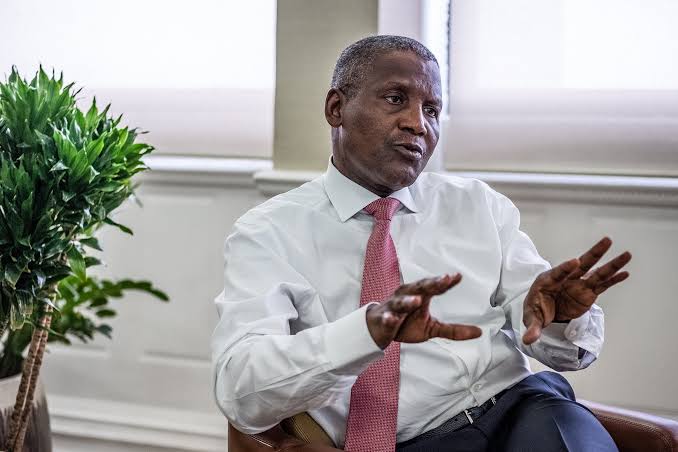
In a released 2017 KPMG CEO Outlook, Alhaji Aliko Dangote, President of the Dangote Group, provides insight into his business success.
Dangote Group, one of the leading diversified business conglomerates in Africa, generates revenues in excess of US$3 billion and employs more than 26,000 people, with business interests as diverse as cement, sugar, pasta, natural gas, and telecommunications.
“I think really, the future is looking very, very bright,” the business mogul said.
Dangote said rather than entering a new market via acquisition, he prefers to builda business from scratch and then “start competing with a lot of existing players.”
“Areas where some of our competitors have been, for 50 years before us, we’ve gone there, we’ve struggled with them, we’ve taken more market share…with no advertisements, nothing,” he added.
“What we’re doing is making sure the quality is unquestionable,” he said, adding that when “you’re providing the highest quality product in the market, you’re able to attach a very good price to that product.”
Dangote recalled that when he entered the cement business, he realized the burning question was whether his company would be able to produce cement that rivaled the quality of the established and only other cement producer operating in Nigeria at that time.
He said: “We concentrated on quality. We knew customers would not trust our brand because they’d been used to one brand for over 50 years. That’s how we came out to have the best quality ever.”
Dangote revealed that he rises before 5:30 a.m. every day and after prayers and run 10 kilometres.
He is at the office by 8:30 a.m. putting in 18-hour days on a regular basis.
“I don’t really take my job as something I have to do, it is my hobby. Twenty-four hours in a day really is not enough,” he added.
On the topic of leadership, for any company to be successful, Dangote said: “The main objective for any CEO is to make sure there’s ownership.
“Some of our competitors are not doing well because there’s nothing like ownership in their businesses.
“What we try to train our people on is that they must be committed and they must have ownership of the business.
“Don’t take it as something that you’re doing just to earn a salary. I think that kind of outlook can bring a major change in any business that you operate.”
•Source: Nigerian Tribune
